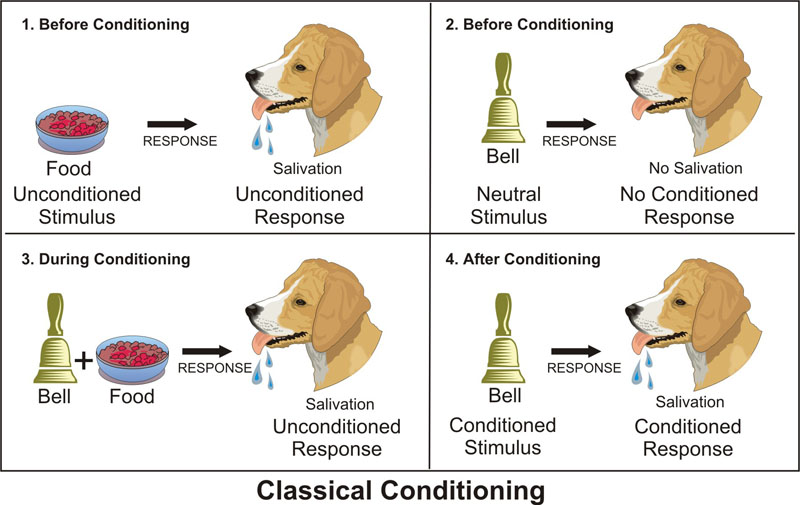BEHAVIOURISM
Behaviourism is based on the assumption that learning
occurs through interactions with the environment. Two other assumptions
of this theory are that the environment shapes behaviour and that taking
internal mental states such as thoughts, feelings, and emotions into
consideration is useless in explaining behaviour.
WHAT IS OPERANT CONDITIONING?
Operant conditioning (sometimes referred to as instrumental
conditioning) is a method of learning that occurs through rewards and
punishments for behaviour. Through operant conditioning, an association is made
between behaviour and a consequence for that behaviour. For example, when a lab
rat presses a blue button, he receives a food pellet as a reward, but when he
presses the red button he receives a mild electric shock.
Key terms: rewards, punishment, controlled behaviour
CLASSICAL CONDITIONING
In contrast, classical conditioning causes a stimulus to signal a positive or negative consequence; the resulting behaviour does not produce the consequence. Remember the experiment Pavlov did on a dog? Ringing of the bell (stimulus) does not teach the dog how to react, however, it was the dog itself which later understand the stimulus given. The dog began to understand that the bell indicates food and he automatically salivate when the food is given.
Key terms: automatic, involuntary behaviour
|
CLASSICAL CONDITIONING
|
OPERANT CONDITIONING
|
|
First described by Ivan
Pavlov, a Russian physiologist
|
First described by B. F.
Skinner, an American psychologist
|
|
Involves placing a neutral
signal before a reflex
|
Involves applying
reinforcement or punishment after a behaviour
|
|
Focuses on involuntary,
automatic behaviours
|
Focuses on strengthening or
weakening voluntary behaviours
|
|
It
is a learned response
|
Responses are given through
reinforcement.
|
|
No punishment or reward. Relies
more on association between stimuli and responses
|
Learning process takes
place with such enticement and punishment.
|
|
Passive learner participation
|
Active learner
participation
|


